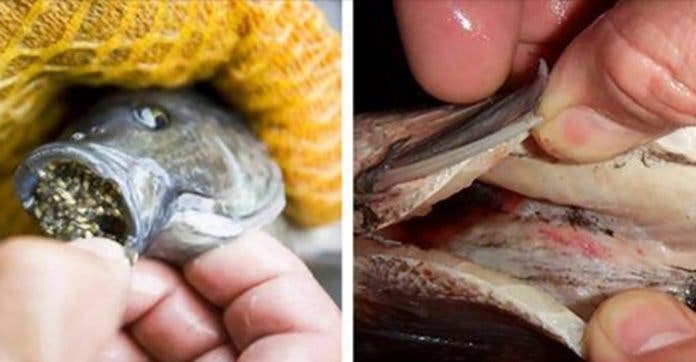Doctors warn: this fish is dangerous for your health!
Doctors warn: this fish is dangerous for your health!

Considered an excellent source of fatty acids, fish are strongly recommended for a healthy and balanced diet. These foods are not only rich in nutrients, but also have many properties. However, it should be noted that not all fish are so good for their health, especially if they are farmed. Some of them can be dangerous for health, like tilapia.
A good and popular fish, but at what price?
Tilapia is a fish with white flesh. It is one of the most consumed fish around the world. It is especially appreciated for its short cooking time and its neutral taste that goes with everything!
Tilapia also has important nutritional values. It is particularly rich in fatty acids that the body can not synthesize, in vitamins of group B, in vitamin D, in magnesium, as well as in proteins of very good biological value. This fish can be considered as a food of choice to include in its diet for a balanced diet.
Tilapia is also distinguished by its ability to reproduce quickly and adapt to any environment.This is why it is one of the most popular fish in breeding, along with salmon. Tilapia can live in freshwater or in the mother and feeds on the lower trophic level of the food chain. There is a real craze for this fish, which has increased its production significantly recently.
Indeed, more than 75 countries in the world make tilapia farming, but it is China that holds the lion's share in this section of the aquaculture market. Its production is estimated at thousands of tons.
Tilapia is sold at affordable prices, which is why it is very popular. However, this fish can be dangerous for your health. Some countries are adopting dubious farming techniques and are thus responsible for the harmful nature of this fish.
Why is tilapia dangerous for your health?
Several factors are to be considered in assessing the adverse effect of farmed tilapia. Depending on where it comes from, this fish can be a real health hazard.
A bad ratio of fatty acids:
Fatty acids are essential substances for the proper functioning of our body. The latter is also not able to synthesize them.
To make the most of their benefits, it is important that the right Omega-6 ratio / Omega 3 be respected.Ideally, the ratio should be between 1/1 and 4/1. But does farmed tilapia respect this ratio?
According to a study conducted by the University of Wake Forest University School of Medicine in the United States, the Omega-6 / Omega-3 ratio of farmed tilapia reaches 11/1.
Recall that high levels of Omega-6 prevent the body from using its contributions of Omega-3. This presents a favorable environment for the development of cardiovascular diseases as well as inflammatory and allergic problems.
Dioxins:
Dioxins are organic pollutants resulting from a combustion process. These substances tend to accumulate in certain levels of the food chain and are found in the human body following the consumption of products contaminated by dioxins.
These substances are present in eggs, meats, but also in farmed fish in general. These concentrate high levels of dioxins to which humans expose themselves by consuming them.
Dioxins are dangerous substances for health. They have been linked to higher risks of Cancer .The International Agency for Research on Cancer (IARC) has classified them as carcinogenic to humans.
Pesticides and antibiotics:
With a goal of massive production, breeders may sometimes fail to meet fish farming standards. The latter are gathered in small ponds on fish farms. This situation increases the risk of developing diseases. To avoid this, farmers use the antibiotics and pesticides, to prevent fish contamination and to get rid of sea lice.
In China, especially, breeding techniques do not meet European standards. That said, fish from this country can be very dangerous. In addition, it has been reported that fish on Chinese fish farms are fed on poultry and fish faeces.
Farmed tilapia is not as good for your health as you think. If you like the taste of this fish, prefer the wild one, to avoid all the aforementioned problems and preserve your health.
When you go to buy fish, especially in supermarkets, take the time to read the label, sometimes the source is quoted!